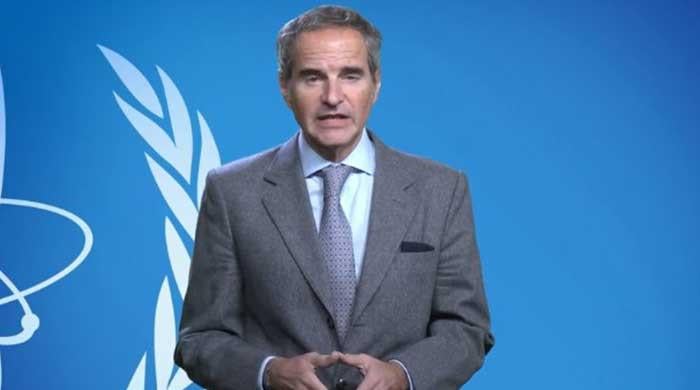'I'm bothered by subordinates considering my soft-spoken nature as a weakness'
"I'm generally not an aggressive person, so those working under me often think I can't be assertive," says a struggling manager
January 01, 2025
Hi Haya,
I'm a guy in my late 20s and struggle with managing people working in my supervision at work. Although I am very professional and try to manage work as smoothly as I can, but something or the other always gets messed up.
This bothers me a lot as I am currently at a managerial position and supposed to lead my team by being an example. But at times, it also gets exceedingly difficult for me to ensure they follow my directions.
A huge part of this issue also lies in my soft-spoken nature and people often misuse it. I'm generally not an aggressive person, so those working under me often think I can't be assertive. I'm willing to cooperate and show kindness when and where possible, but it is now bothering me a lot.
— A struggling manager

Dear struggling manager,
Thank you for reaching out and sharing your experience — it takes self-awareness and courage to acknowledge areas you want to improve. From what you've described, it seems like you're navigating a challenging dilemma: balancing kindness and cooperation with the assertiveness necessary to lead effectively where you are expected to lead with example but at the same time struggling with ensuring that your instructions are followed.
Let's get right into it.
First and foremost, to lead with example (as their manager) you need to have hands on knowledge of the processes. For team members to take you seriously on given subjects they need to know that you know your subject, have a strong grip on what you want to execute, can rely on you and you can provide solutions to their concerns. Even if you haven’t done each and everything yourself, having in depth knowledge will allow you to delegate tasks more effectively.
You say that its due to your soft-spoken nature that no one takes you seriously. Being soft-spoken and kind is not a weakness — it can actually be a strength when channeled effectively. These traits often create trust and loyalty within teams. You can be soft spoken and assertive at the same time. However, it’s important to recognise that being assertive does not equate to being aggressive. It’s about setting clear expectations, holding people accountable, and communicating boundaries in a firm but respectful way.
Assertiveness is a skill that can be learned and practiced, by the following ways:
Communicating expectations clearly: Be specific about tasks, timelines, and outcomes. Avoid vague language. For example, instead of saying, "Try to finish this soon," say, "Please complete this by Friday at 4pm."
Following up consistently: Check in regularly on progress and address any deviations immediately with constructive feedback.
Using "I" statements: Express your needs confidently. For example, “I need everyone to follow through on their commitments because it impacts the team’s overall performance.”
To further enhance your effectiveness, I would encourage you to establish boundaries. Sometimes, being overly accommodating can lead to others taking advantage of your nature. Practice saying "no" or redirecting responsibilities without feeling guilty. For instance, if someone tries to pass off their work to you, you can respond with, "I understand you’re busy, but this is your responsibility. Let me know how I can support you in meeting the deadline."
In addition manage your emotional triggers. When things go wrong or directions aren’t followed, it can be emotionally draining. Take a moment to reflect on your triggers:
What specific situations upset you the most? How do you usually respond?
Understanding these patterns can help you create healthier responses in the moment.
Moreover, master your communication skills and build your authority through actions. Communication is a skill like assertiveness that can be learnt. The way you express yourself has a big impact on the way you feel about yourself and the way others perceive you. Its inclusive of your choice of words, tonality, body language etc. and building authority via actions involves being decisive and confident in your decisions, being able to handle conflicts directly but respectfully and recognising and rewarding good performance which encourages respect for your leadership.
To summarise, focus on the things within your control. Getting in depth knowledge of processes, practice being assertive, establishing boundaries, mastering communication skills and building your authority through actions.
I would like to remind you that you don’t have to navigate this journey alone. Remember half our battles are won when we seek support.
You could seek mentorship via a senior leader who exemplifies the leadership qualities you aspire to, attend workshops or read books on leadership and assertiveness. Resources like "Dare to Lead" by Brené Brown or "The Assertiveness Workbook" by Randy J Paterson can be helpful. You can also seek support of a personalised coach who will work with a tailor-made approach in specific to your concerns and journey.
Goodluck!

Haya Malik is a psychotherapist, Neuro-Linguistic Programming (NLP) practitioner, corporate well-being strategist and trainer with expertise in creating organisational cultures focused on well-being and raising awareness around mental health.
Send her your questions to [email protected]
Note: The advice and opinions above are those of the author and specific to the query. We strongly recommend our readers consult relevant experts or professionals for personalised advice and solutions. The author and Geo.tv do not assume any responsibility for the consequences of actions taken based on the information provided herein. All published pieces are subject to editing to enhance grammar and clarity.











